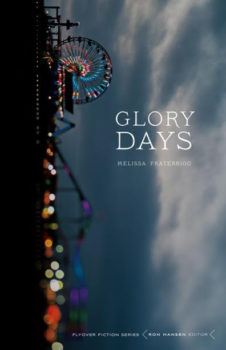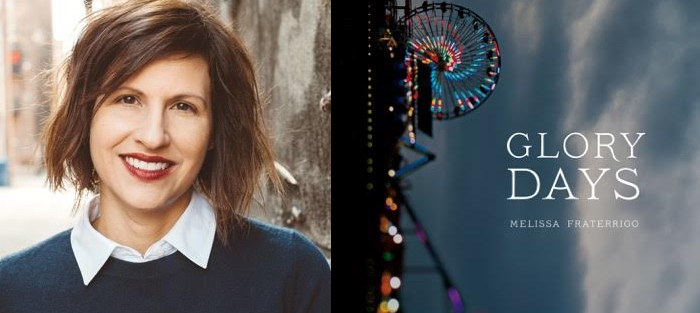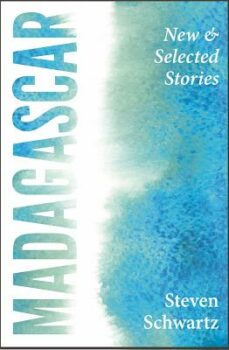One of my favorite short stories is Mark Twain’s little-known “A Ghost Story,” published in Sketches New and Old (1875). In it, the Cardiff Giant, based on a 19th-century hoax perpetuated by P.T. Barnum, visits a renter in his New York City apartment only to later discover he’s been haunting the wrong body. In usual Twain fashion, the absurdity of a ghost gone wrong is juxtaposed with the original terror of the renter until the whole thing is called off and the giant learns he has the wrong address. Though rather than forced to flee, the giant ghost is in fact welcomed, even chastised and teased by our narrator: “You have broken off the end of your spinal column, and littered up the floor with chips off your hams till the place looks like a marble yard.” Any reasonable reader might assume ghosts illicit fear but Twain shows us it really depends on the ghost.
Like Mark Twain, aka Samuel Clemens, I grew up in Hannibal, Missouri, a town haunted by familiar characters that still ghost Main Street and my own work. I didn’t realize how much of my hometown I wore until I found myself so often in the work of other Midwestern writers struggling valiantly on the page to counter the “fly-over” idea that small town origins are simple and therefore simply illustrated. The folks I know and write are complicated, misunderstood, and often marginalized by east and west coast cultures who dismiss their value, sometimes even in literature. Ghosts do a lot of the heavy lifting in counteracting the stereotypes. Whether the haunting is physical or metaphorical, as in Melissa Fraterrigo’s novel-in-stories, Glory Days, published by the University of Nebraska Press this fall, the ghosts have agency, even jobs to do. They are central to the plot and active in conflict resolution. Mostly, ghosts are accepted as part of the emotional process of the characters.
In Glory Days, Teensy and his daughter, Luann, struggle to move forward in a world that keeps pulling them back. While in mourning for Luann’s mother, their land is lost as developers buy plots for an amusement park called “Glory Days.” Grief, longing, and unsettling pieces add up to a stark picture of haves and have-nots. The changing culture of the small plains town turns dark as the past is stirred through ghosts, seers, drugs, and greed. In the Chicago Review of Books’ recent “Best Fiction Books of 2017,” Adam Morgan writes, “Every year, at least one small-press book comes out of nowhere (i.e., it wasn’t on my radar) to become one of my favorites…This year, it’s Glory Days, a quiet Midwestern ghost story with prose as clear and cold as the Nebraska plains in winter.” Bustle also included the book in “13 Books By & About Women That You Might Have Missed in 2017,” writing that “Glory Days blends the surreal with the supernatural while remaining firmly grounded in the hearty Midwestern earth of its setting.” Surprisingly or maybe not, what ghosts, dying small towns, and their inhabitants need most is compassion. Honest, revelatory stories like Fraterrigo’s do exactly that.
Glory Days is Fraterrigo’s first novel. Her short story collection, The Longest Pregnancy, was published by Livingston Press in 2011. Fraterrigo’s fiction and non-fiction has appeared in more than forty literary journals and anthologies and won the Zoetrope: All Story Sam Adams Short Fiction Contest in 2000. She is founder and director of the Lafayette Writers’ Studio in Lafayette, Indiana. Because the Midwest has so much terrain to manage, we met up over email while we both balanced book tours, teaching, and motherhood.
Interview:
Melissa Scholes Young: Luann is a woman I know. She felt so familiar to me. Her grief coincides so powerfully with her own coming of age, yet she’s still such a mystery.
Melissa Fraterrigo: I think every woman could tell a story about a man in her life and how her interactions with this man taught her how to exist in her own skin. For many, this man is her father (that’s certainly been my experience!) and we see this in Glory Days, as well as through the relationship between Luann and Teensy. In the opening chapter, “Ghosts,” Luann is eight and becomes her father’s caretaker after the death of her mother. Teensy is torn up by grief and the loss of Tess’s family’s land, and Luann essentially assumes the role of a little wife. She tries to mend him by making meals and doing little dances to entertain, and it feels good for her to be needed in this way. That compulsion to put her desires aside explodes two chapters later, in “Bait.” Here Luann is fed up with Teensy and his dreaming. He’s renting land, trying to again raise cows. As such, Luann begins to gravitate toward the attention men can provide—this is the kind of attention they offer her in the backseat of a pickup or on an afghan on the riverbanks.
Why is Luann’s story universal?
Luann’s universality really comes back to the way she looks to Teensy and later other men to fill in the gaps in her own sense of self. It is much easier for her to address Footer’s needs—to be scared by his wants and desires—than it is to go her own way. Luann doesn’t really know what she wants from life throughout much of Glory Days, and by the time she develops an inkling she’s shifted allegiance to drugs, another attempt to find peace, to calm the rattling in her brain. Who doesn’t feel such chaos in their mind? The difference is that Luann turns to others to soothe this chatter, and they never have her best intentions in mind.
Another universal truth is how land defines so much of our identity. How is the loss of Tess intensified by this additional grief of losing the family property?
 I think in our changing world, the one thing that we do not own, to paraphrase Barry Lopez, is the land itself, and yet land is also the one constant. I grew up in the south suburbs of Chicago and the places of my childhood exist in my mind as they were years ago. I can tell you how it felt to swivel in a plastic seat at McDonald’s on Wentworth Avenue where my Aunt Sandy once worked the fryer. And I recall the bitter cold water at Lan Oak Pool, where I spent my mornings, swimming laps on a team, choking on exhaust from the semis on I-94. Yet if I return to the actual locale, these places would be different. The pool closed a decade ago and remains a pitted concrete grave. Wentworth Avenue is still there with possibly the same McDonalds, but Aunt Sandy is long gone, as is the paper hat she wore each day when she took her place behind the counter.
I think in our changing world, the one thing that we do not own, to paraphrase Barry Lopez, is the land itself, and yet land is also the one constant. I grew up in the south suburbs of Chicago and the places of my childhood exist in my mind as they were years ago. I can tell you how it felt to swivel in a plastic seat at McDonald’s on Wentworth Avenue where my Aunt Sandy once worked the fryer. And I recall the bitter cold water at Lan Oak Pool, where I spent my mornings, swimming laps on a team, choking on exhaust from the semis on I-94. Yet if I return to the actual locale, these places would be different. The pool closed a decade ago and remains a pitted concrete grave. Wentworth Avenue is still there with possibly the same McDonalds, but Aunt Sandy is long gone, as is the paper hat she wore each day when she took her place behind the counter.
What you bring to the locations would be different too, yes? Meaning your perspective has shifted too?
And while these memorable places are more removed from the corn and beans that populate much of the landscape of my current residence, I can still feel the pull of story that exists in them. Land came before us and it will exist well beyond us whether or not we notice it. And I take comfort in aligning myself with place. There is a bias toward the coasts and all that water and yet in adulthood, when we moved to our current home in West Lafayette, Indiana, I found a great comfort in the farms that span in most directions well within city limits. In the summer there are stalks of corn and now, just stubbed bits, brown, quiet, and unloved—there is such potential in this fallowness.
To get back to your initial question, I think the loss of Tess is intensified by the loss of the family farm because with the selling of the land, something foreign will be in its place. This break from tradition is a threat to a way of life that has been a part of Ingleside’s history as a provider, altering this small Plains town into something much darker. Many of the characters in Glory Days are not the most emotionally available, so there is an additional level of grief to this idea that the land, which has fed Tess’s family and countless others in Ingleside is now going to be used for development—something foreign and new and unlike anything else.
In an interview you did with Tanya Perkins at The Review Review, you mentioned the challenge of puzzling together structure. Did you always know these pieces would fit as a novel in stories or did you consider another form?
I had no idea this would be a novel starting out. I just thought I was writing a story. Yet the process was unlike anything I had previously experienced. After I finished “Teensy’s Daughter,” I kept thinking about Gardner and Teensy and Luann. I needed to understand why Teensy and Gardner hated one another and I needed to discover what Luann, Teensy’s daugter, was doing fooling around with Gradner, a guy thirty years her senior. So while “Teensy’s Daugther” appears three-quarters of the way through Glory Days, I had to work backward from that point to put all these pieces together. I worked in this fashion until I got to “Ghosts,” the first chapter of the book, where we are first introduced to Teensy and Luann while they grieve both for Tess and the loss of her family’s land. In this piece, Luann is eight years old and Teensy is maybe in his early thirties. From there I was able to jump forward in time to what transpires after “Teensy’s Daughter.” I’ve never had so much fun.
And speaking of puzzles, we’ve talked a bit about managing many roles: author, teacher, parent. We’re both raising daughters, launching books, and maintaining classes. Why do you think it’s so important that our daughters, in particular, see us write?
It has indeed been interesting to try and balance book promotion and my responsibilities as a parent with teaching and writing. I don’t know that there is any right way to do it, yet as a mother of daughters I try and take the long view and think about the lessons my actions are imparting on them. My girls know that I write every morning before they wake and that I’m working on a new novel. I talk to them about problems I’m having with the book and I like the idea of letting them know that I’m working on a goal—something of my own design. I want them to believe that their needs and dreams matter and are worth pursuing. I hope I’m showing them this through my actions.
Can you share more about the process of writing each piece in relation to the whole novel?
 Well, once I had the characters of Teensy, Gardner and Luann and began the process of moving backward from “Teensy’s Daughter,” I met Fredonia the Great, a seer who works at Glory Days. When Fredonia lays hands on guests she is able to see how these individuals will die and I found Fredonia such a force that I didn’t initially realize she was part of this novel. It wasn’t until I started to notice that many of the chapters demonstrated an affection for the loss of land that I began to consider what would become of the town of Ingleside now that it was no longer being farmed. I knew that developers were coming in and building houses, but I didn’t know that they were also erecting an amusement park until I realized that Fredonia belonged in the novel as well. With that realization I was able to have Luann visit Glory Days and meet Footer and wow—things really took off from there.
Well, once I had the characters of Teensy, Gardner and Luann and began the process of moving backward from “Teensy’s Daughter,” I met Fredonia the Great, a seer who works at Glory Days. When Fredonia lays hands on guests she is able to see how these individuals will die and I found Fredonia such a force that I didn’t initially realize she was part of this novel. It wasn’t until I started to notice that many of the chapters demonstrated an affection for the loss of land that I began to consider what would become of the town of Ingleside now that it was no longer being farmed. I knew that developers were coming in and building houses, but I didn’t know that they were also erecting an amusement park until I realized that Fredonia belonged in the novel as well. With that realization I was able to have Luann visit Glory Days and meet Footer and wow—things really took off from there.
On a sentence level, your writing style often drops subjects and articles. It gives the prose an intimate, conversational tone, as if Luann is whispering the story in my ear.
I read everything out loud. I am determined to not waste a single word or moment of my reader’s time. I think by sometimes dropping articles (they are often unnecessary in my opinion), the engines of the story—the verbs and nouns can huddle closer, creating that conversational tone you mentioned. When I read the work out loud I want to hear a musicality to it. Every word (sentence!) must work on more than one level; at least that’s my goal. I don’t know that I always accomplish this, but that’s my intention.
We’re both writers who use the Midwest as a character in our work; Flood is set in my hometown, Hannibal, Missouri, and Glory Days is built in Ingleside, Nebraska. Even your publisher, University of Nebraska Press, has released it as part of their Flyover Fiction Series. What do you think it means to be from and to write about a culture that is so complicated and misunderstood?
I’m honored to be a lifelong Midwesterner and to write and think about place with central allegiance. I like the idea of writing about a complicated culture because in those jagged edges there are possibilities and unanswered questions, and those hard-to-get-to places of the Midwest and the back roads of small towns are what appeal to my imagination. A complicated culture generates questions and in some ways welcomes them. When you are misunderstood, easy answers don’t exist. Good fiction often originates in these vulnerable places.






